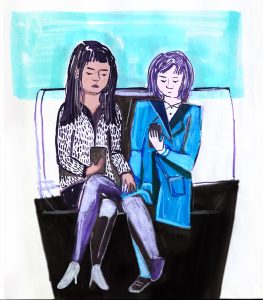
Zero Discrimination Day on March 1
By Tania Arora, Staff Reporter
Everyone deserves a life of peace and dignity; hence, Zero Discrimination Day is celebrated each year on March 1.
The day has created a worldwide movement that aims to end forms of discrimination in all countries. Each year a campaign is organized with different agendas revolving around discrimination. This year, the theme highlights the urgency to take strict action against discriminatory laws.
In many countries around the globe, people are treated differently on the basis of who they are, where they come from, and what languages they speak. Many are subjected to undue restrictions and the denial of basic human rights. Discrimination can be based on health status, identity, community, race, gender, religion, and much more.
The Joint United Nations Programme on HIV/AIDS (UNAIDS) released a brochure this year which stated, “Ending discrimination and changing laws is the responsibility of us all. Everyone can play a part in ending discrimination and can try to make a difference, in ways both big and small. The Zero Discrimination Day 2019 campaign challenges people to act against laws that discriminate in their country.”
Many laws—including property laws, migration and citizenship laws, workplace legislation, and more—contain discriminatory provisions. The preamble for the Charter of the United Nations puts an emphasis on ending discrimination, stating that the peoples of the United Nations are determined “to reaffirm faith in fundamental human rights, in the dignity and worth of the human person, in the equal rights of men and women and of nations large and small.”
As mentioned by UNAIDS in their brochure, many of these discriminatory laws can be amended. Ending discrimination worldwide is not a one-day process or an easy one but requires efforts by everyone to come together and contribute towards making a difference.
The Zero Discrimination Day 2019 campaign highlights that individual members of society can make a huge contribution towards ending discrimination and helping others to do the same. UNAIDS offers steps people can actually follow to start implementing positive change, such as volunteering for organization working to reform laws and calling out discrimination wherever you see it.
Saksham Thakkar, a student at Douglas College, said in an interview with the Other Press, “It is really hard to figure out if discrimination has actually increased or decreased. [To] date, in [a] majority of […] countries, same-sex marriage is a criminal offence, companies still pose restrictions on HIV-affected patients, many girls marry at the age of 18 or lower. The way to [our] destination is long when there will actually be zero discrimination.”



